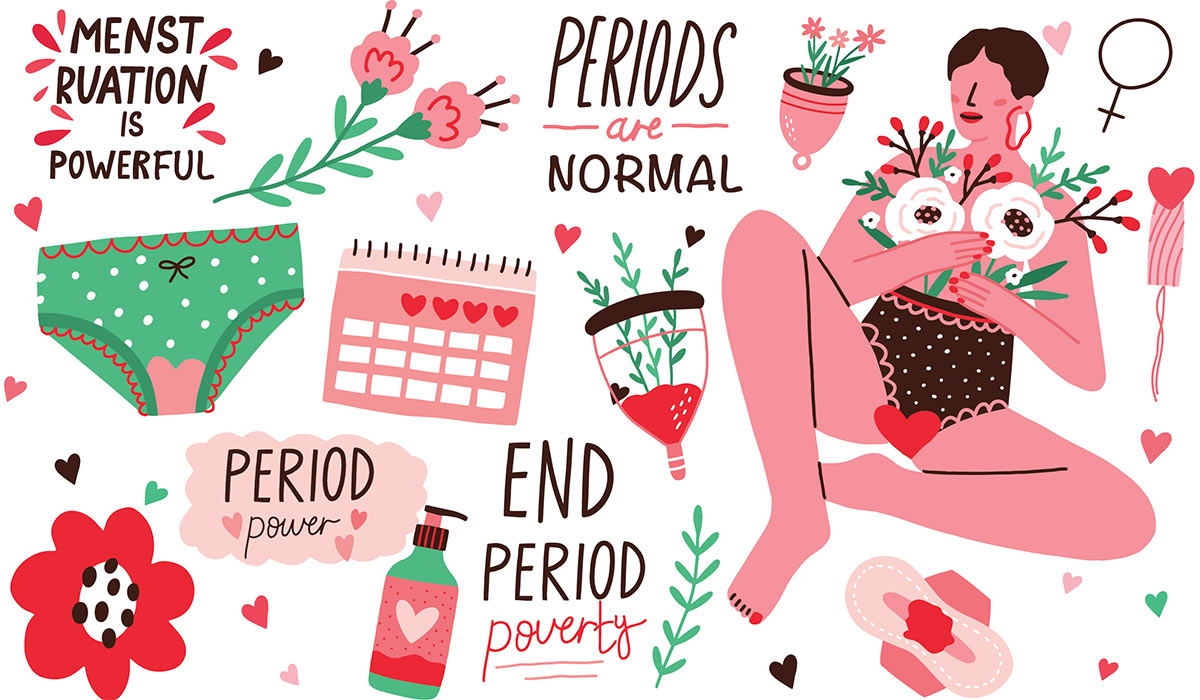5 Things You ABSOLUTELY Need To Know About Your Body
 via Giphy
via Giphy
Most of us first learn about our bodies in Health Ed. The only problem is when you’re fifteen, your number one priority in class is probably your crush or the usual teenage dramz, not the impact of estrogen. Either that or you’re a little too overwhelmed or even embarrassed (which btw is totally normal) by the changes that are already occurring to really understand what’s going on. But learning about how your body works is so important. It’s never too late to learn, right? Here’re five things you should know about your body. Knowledge is power, after all. So get ready to be empowered!
1. The Impact Of Your Period
 via Giphy
via Giphy
Your first period is a big deal. Period. But then again, so is the second, the 16th and the 100th. Your cycle is constantly changing and can be affected by so many things, including your weight, fatigue levels, exercise, your age, and contraception. So, knowing how to deal with your period and, of course, the numerous side effects, is essential. But it’s not just your period; you should really be aware of how your hormones affect your body, at every point of the cycle.
Dr. Rebecca Booth, board-certified OBGYN explains, “Each day of the menstrual cycle is a reflection of the different levels of the ‘big three’ hormones: estrogen, progesterone, and testosterone. Not only are we designed to have these levels fluctuate, but their relationship varies each day as well, influencing how we look and feel.” To find out more about how your hormones affect basically your entire life, read this post.
Period 101:
- If using tampons, make sure you change your tampon every four to eight hours to avoid toxic shock syndrome. Find out more about toxic shock syndrome here.
- Avoid fragranced pads as they could cause irritation. A normal, healthy period should be odorless. You should also change your pads every six hours.
- As for the period pains, there are plenty of natural remedies: a hot water bottle, a bath with some essential oils or even eating a banana. Bananas release glucose and potassium at a steady rate to help elevate your mood for longer while helping you beat the bloat. Check out this post for more natural PMS remedies.
2. How To Keep Your VJJ In Check
 via Giphy
via Giphy
Knowing how to keep your VJJ in check is pretty simple – avoid harsh soaps, don’t ‘overcrowd’ it with tight underwear, and always pee after intercourse.
Mostly, you should be able to recognize what’s healthy, what’s normal, and when something isn’t quite right; from a healthy amount of discharge to the correct smells – you know what we mean. According to one of the world’s leading gynecologists and professor at the Yale University School of Medicine, Mary Jane Minkin, most menstruators have a small amount of moisture. “The discharge is usually odorless and can fluctuate during the month. During ovulation, it can increase and often you’ll have more ‘sticky’ discharge.” Read this blog for more deets on what you discharge really means.
3. How To Check Your Boobs
 via Giphy
via Giphy
One thing that most women know they should do, but probably don’t do regularly enough, is check their boobs. Well, we’re here with your regular reminder that boob maintenance is a must. In the UK and US, 1 in 8 women are affected by breast cancer, and it’s the most commonly diagnosed form of cancer in women under 40. So, knowing what to look for when checking your boobs is literally a life-changing habit. The idea is to do it every month, that way you become familiar with how your boobs look and feel, and you’re more likely to be able to notice any differences. The key things to look out for are:
- Swelling in the armpit or around your collarbone
- Changes in texture
- A sudden or unusual change in size
- Lumps or thickening
- Nipple discharge, crusting or inversions
- Continuous tenderness
For more details on how to check your breasts, check out this post – it will be the most important thing you do today!
4. Your Skin Type
 via Giphy
via Giphy
We recently saw a quote on Instagram, and it gave us some major feels: “I wish I hadn’t taken care of my skin,” said no one, EVER. Word. Taking good care of your skin is something you’ll always be grateful for later down the line. And the first step to showing your skin some love is simple: get to know your skin type. This will help you tailor your regime so that you can enhance your glow game and keep your skin happy and healthy. The common skincare categories are: sensitive, dry, normal, oily, acne-prone, and aging skin concerns. You might even be a couple of these; you could be both dry and sensitive or even sensitive and acne-prone. You may also be dry during the winter and oily during the summer. Check out this blog post about finding out your skin type and how to look after it here.
5. The Impact Of Contraception
 via Giphy
via Giphy
At some point in your life, it’s likely that you may want to use some form of contraception. According to the National Health Statistics Report, 62% of women in the USA (who are of reproductive age) are taking or using contraception – that’s 20.8 million women! But as great and empowering as it can be, contraception can have a serious impact on your body and your mental health, and it isn’t always positive, which is why its integral to know what to expect before you decide to commit.
Dr. Booth explains how contraception works: “For women, fertility is dependent on a fluctuation of hormones, so a steady level of hormones induced by combination contraception pauses fertility, but the consistent estrogen component can stabilize and suppress negative changes that affect skin such as blemishes, unwanted facial hair, and enlarged pores.” Find out more about the effects of contraception here.
Let us know if there are any other body issues you’d like help with in the comments below.























Leave a comment